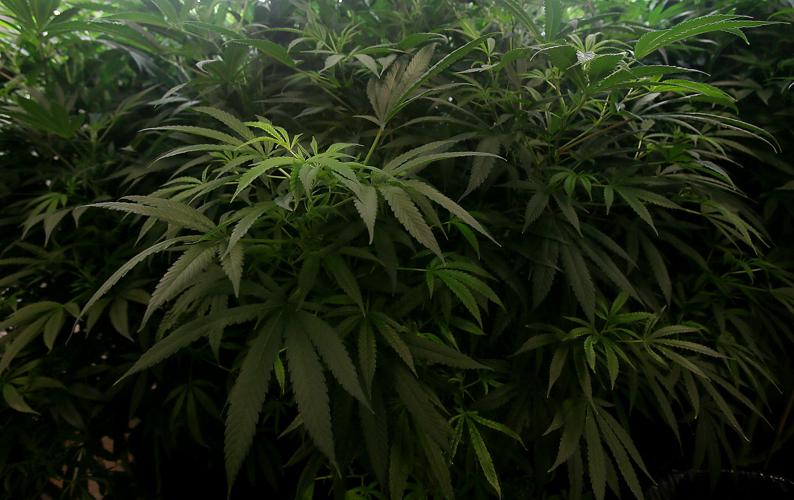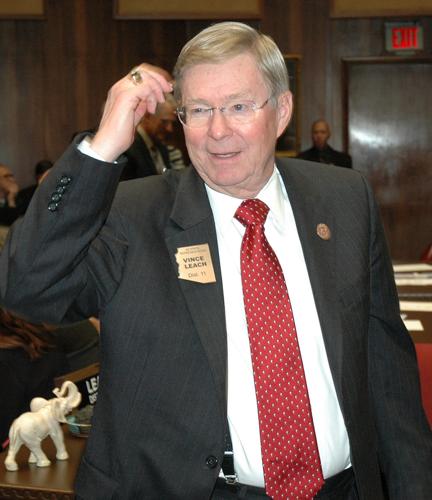PHOENIX — State lawmakers are moving to keep medical marijuana dispensaries in rural areas of the state from moving to cities.
On a 5-4 vote Monday, the House Committee on Military, Veterans and Regulatory Affairs approved legislation saying those who were the first to open marijuana stores following the 2010 voter approval of medical marijuana sales cannot move outside the areas where they first opened.
It’s not that Rep. Vince Leach, R-Tucson, the sponsor of HB 2029, particularly likes having dispensaries in the rural areas of his district, which extends into Pinal County.
Leach pointed out that the 2010 law says anyone legally entitled to use medical marijuana must purchase it from a state-licensed and -regulated dispensary.
But there is an exception for those who live more than 25 miles from such a shop: They can grow their own. As the owners of rural dispensaries seek more financially fertile sites in the Phoenix and Tucson areas, Leach told colleagues, that will leave large areas of the state where residents would be free to grow plants in their homes and yards, unregulated by the state.
Leach said it already is happening. He said a dispensary that had been in Florence is now gone.
Monday’s vote came over the objections of Kevin DeMenna, who lobbies on behalf of the dispensary owners.
He said changing the rules now — and precluding his clients from taking advantage of better locations — would amount to an unconstitutional taking of their property rights. That could land the issue in court, he said.
The 2010 law allows people with a doctor’s recommendation and state-issued ID card to obtain up to 2½ ounces of marijuana every two weeks. The law also directed the state Department of Health Services to allow a certain number of dispensaries. If there was more than one applicant for any area there had to be a lottery; if not, the sole applicant got the right to sell marijuana in that area.
With that distribution, virtually every area of the state was within 25 miles of a dispensary. State health officials estimated in 2014 that the dispensaries covered 98 percent of marijuana users.
But the health department’s rules also say that any dispensary in an area for three years is free to move anywhere else in the state, assuming the applicant gets the proper zoning, said department lobbyist Colby Bower.
That’s what’s happening now — and what Leach is seeking to stop.
“If you take the dispensaries out of small towns such as San Manuel, Oracle, Florence, and you move them to where the population is, and the wealth base, you’ll see that they’ll be moving into Scottsdale, Phoenix and the like,” he said.
Leach said he has no problem with larger communities having more dispensaries. “If they want to accept as many as they want, that is up to them,” he said. “That is local control.”
His issue is the flip side.
“We’ll be turning rural Arizona into an open-grow because the dispensaries will be leaving,” Leach said. He noted the law permits growing up to 12 plants.
DeMenna told lawmakers the state can’t change the rules now.
He said some of the people who invested in rural dispensaries years ago did so with the understanding that they could sell their dispensary licenses after three years to someone who might want to make a go of it in an urban area. And while the dispensaries are technically nonprofit operations, DeMenna said they are worth money to those who own them and pay themselves a salary, with licenses recently selling for $2 million to $3 million.
That argument was enough to convince Rep. Richard Andrade, D-Glendale. He said the dispensary owners are running a business and the state should not be imposing new restrictions.
But the majority of the panel thought otherwise, setting the stage for a vote of the full House.
Leach could have his hands full there. Because the medical marijuana law was approved by voters, lawmakers can make only changes that “further the purpose” of the original law. Even if Leach can meet that hurdle, amendments like this require a three-fourths vote of both houses.





